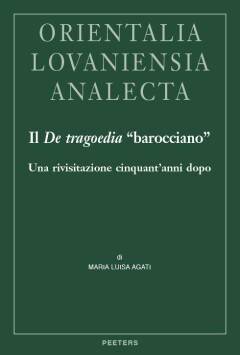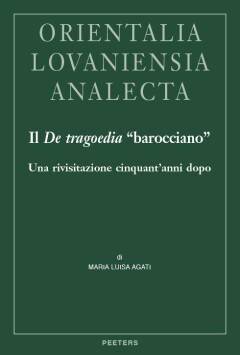
Bedankt voor het vertrouwen het afgelopen jaar! Om jou te bedanken bieden we GRATIS verzending (in België) aan op alles gedurende de hele maand januari.
- Afhalen na 1 uur in een winkel met voorraad
- In januari gratis thuislevering in België
- Ruim aanbod met 7 miljoen producten
Bedankt voor het vertrouwen het afgelopen jaar! Om jou te bedanken bieden we GRATIS verzending (in België) aan op alles gedurende de hele maand januari.
- Afhalen na 1 uur in een winkel met voorraad
- In januari gratis thuislevering in België
- Ruim aanbod met 7 miljoen producten
Zoeken
Omschrijving
After its first publication in 1963, the Byzantine treatise Peri tragoedias, unicum handed down from the important Oxford MS Barocci 131, entered into a debate on its exegetical and genesis problems. Not even the edition of 1993 seems to solve the many questions. This new edition starts from scratch: through the sources and the use of an updated bibliography, exegesis aims primarily to highlight the "non-verbal" aspects of Greek theater: space, music, song and dance, now in vogue in the studies and in which the Anonymous author is welcome. In a new global consideration, the philological study is intertwined with the palaeographic-codicological and historical one. The Baroccianus is thus more punctually contextualized in its typical typology of erudite miscellany from the late Byzantine age composed in stages, and the intersection of the various clues makes it possible to formulate the original conclusive hypothesis relating to the paternity of this strange text: excluding Psellus (as most believe), the compilation of all the philosophical texts among which this is inserted can be placed in the climate of the Empire in exile of Nicaea and in the scholarly ambit of the Imperial court.
Specificaties
Betrokkenen
- Auteur(s):
- Uitgeverij:
Inhoud
- Aantal bladzijden:
- 221
- Taal:
- Meerdere talen
- Reeks:
- Reeksnummer:
- nr. 294
Eigenschappen
- Productcode (EAN):
- 9789042939134
- Verschijningsdatum:
- 12/11/2020
- Uitvoering:
- Hardcover
- Formaat:
- Genaaid
- Gewicht:
- 798 g

Alleen bij Standaard Boekhandel
+ 180 punten op je klantenkaart van Standaard Boekhandel
Beoordelingen
We publiceren alleen reviews die voldoen aan de voorwaarden voor reviews. Bekijk onze voorwaarden voor reviews.









